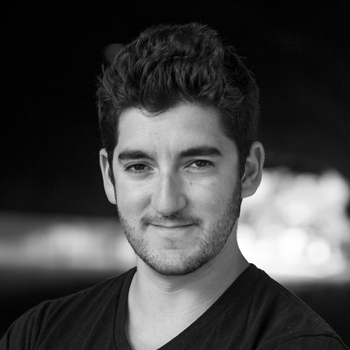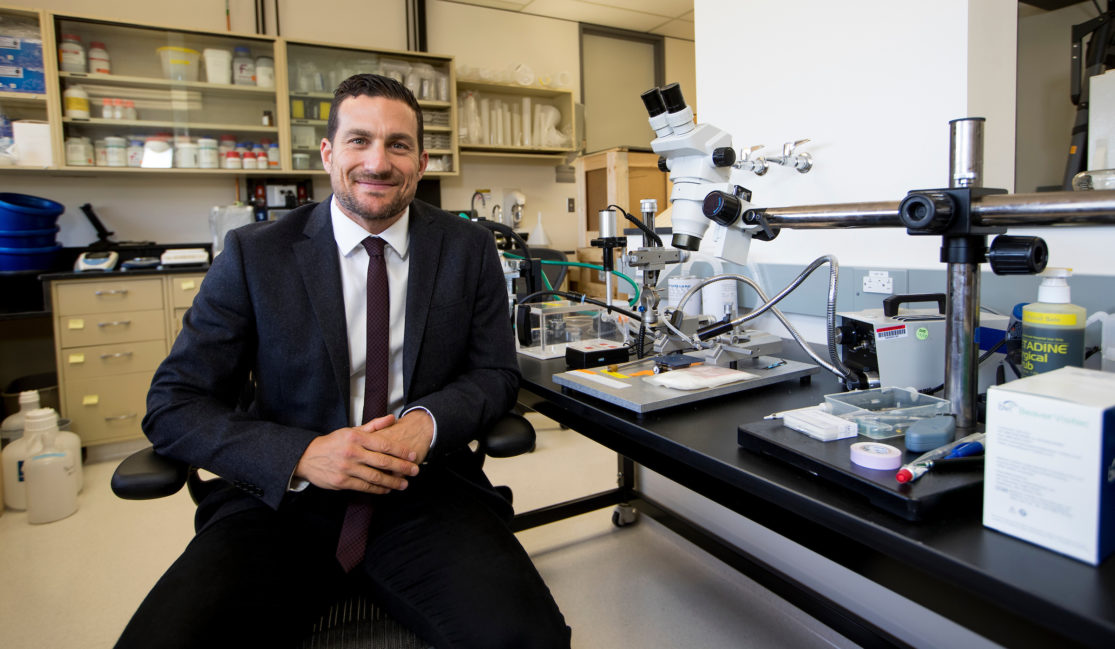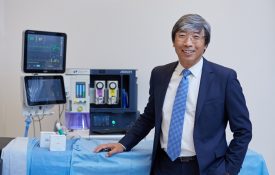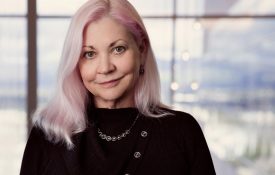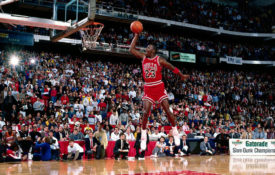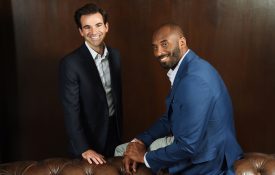This podcast episode is the first-ever “Huberman-interviews-Huberman” on Hawketalk. Host Erik Huberman, CEO of Hawke Media, interviews Andrew Huberman, PhD, an award-winning American neuroscientist and tenured professor at the Stanford University School of Medicine. And for those who are wondering, no, Erik and Andrew and not related.
Andrew Huberman is the principal investigator and Head of Huberman Laboratory, which focuses on how the brain works, how the brain changes and adapts through experiences, and how the brain recovers from disease or injury.
Many of their findings are explained in lay terms in Andrew Huberman’s YouTube channel and podcast. It is part of his desire to bring education to the general public at no cost.
Check out these highlights from what Andrew had to say about how focus, passion, and dedication led him to this very fulfilling medical career.
1. He wasn’t the best student growing up
I took the SAT. I did OK, not great. And I wrote my college entrance basically about the fact that I’ve had this very stable upbringing until about 13, 14, and then it just really been chaos. And I’ve been wandering, batted around, you know. I didn’t want to make it seem worse than it was, but I didn’t have any direction, and I conveyed that. Except I said that I think I found that direction, which is I’d like to go into the fire department. I see myself in some role of public service, and having a bachelor’s degree I believe would help me develop some leadership skills, expand my knowledge, etc.
After the first year [of college], I wasn’t organized around my academics, I did very poorly, and I ended up leaving. I left on a leave of absence.
I moved home, and I went to community college for two semesters. And at that point, I really locked it down. I really decided this is it. This is my opportunity to turn my life around.
2. He started to focus on his education
A lot of my friends that were still back home were getting into a lot of trouble with drugs and violence. I just made the decision.
And so I moved back to school; I put myself in a studio apartment, meaning I wasn’t going to be surrounded by roommates and any kind of excitement. And basically, for four years, all I really did was study, lift weights, and run. It was a very structured living.
3. How he encountered neuroscience
I had a professor who turned me on to neuroscience. His name is Harry Carlisle, and he was a phenomenal professor.
I went and worked for this guy, worked in his lab. He took a liking to me, I took a liking to him.
I had a strong work ethic. I wasn’t perfect at channeling it at the beginning, but I could work. I could really put in the hours.
So I worked in his lab. I did senior thesis in his lab, etc. I eventually graduated with a degree in psychology with a biological emphasis.
About a year before I graduated, [Carlisle] pulled me aside and said, “You know, you might want to consider going to graduate school.” And so I applied, and I got in a couple of places, and I ended up going to Berkeley.
4. On choosing his career path
I did a master’s at Berkeley. It was supposed to be a PhD. But about halfway through, I took a course from a woman named Carla Shatz, who in the world of neurobiology is very famous. I took a course from her and was just so excited about this stuff. So I went to her and said, “I want to work with you. I want to do my PhD with you.” And she said, “I’m moving to Harvard, and you don’t really have a lot of background in cellular, molecular neuroscience. So I think you should work for somebody who’s starting their own lab.” She said there’s a woman up at Davis named Barbara Chapman who’s starting her lab, you should go up there.”
And I thought, I love Berkeley, why would I go to Davis?
But I drove into the little town of Davis, and I met with this woman, Barbara Chapman, and you know, every once in a while, just like meeting Harry Carlisle or getting to know Carla, there are these moments of intellectual or professional chemistry that you have with somebody. But I thought, I have to work for this woman.
I remembered at that time, my dad and I had reconciled. I told him, “I’m leaving Berkeley, and I’m going to Davis to get my PhD.” And look, Davis is a great school, don’t get me wrong, but Berkeley’s considered an A-tier school. He said, “Tell me more about this program.” And I said, “There are only two of us in the incoming class.” And he said, “Either this is the best decision you’re ever going to make or the biggest mistake you’re going to make in your academic career.”
I got to Davis, and I loved working in Barbara Chapman’s lab.
5. A brewing passion for neuroscience
I was kind of an animal. I was a 25-year-old guy. I actually was the only student in Barbara’s lab. I put tin foil on the windows, and I would lock the doors, and I would just play music all day, and I would just do experiments all day long. She had her office across the street.
And I remember thinking, I’m gonna give this everything. I actually slept and lived in the office down the hall from the lab, brushed my teeth there in the morning, then right back in. And I was in paradise.
For me, at that age, there are these few times in life when you have the opportunity to be very pure, in a pure relationship to your professional or academic life.
6. On building a good work ethic
These highly educated, very well-trained people are saying, “If you come here and work hard and you stay humble, and learn, then you’re going to get good at this thing.
So I just threw myself into it. And then you get good at it, you get used to it. You start getting up early for a while, you get used to it. You start pushing through the physical pain of fatigue, you get used to it. And then what happens is you kind of build an energy, which surely is something stored in the nervous system.
7. The Dirty Secret in Science and Research
Here’s the dirty secret in science and research: If you plan on being a researcher, it truly doesn’t matter where you get your degree.
People don’t like to hear it, but it is true. So, the fact of the matter is, you’re judged on the quality of your original research publications, the extent of your scholarship, your participation at meetings, and that sort of thing. So you can be anywhere and do well in research science.
More insights on drive and passion
Here are some takeaways from Andrew Huberman’s interview on drive and passion:
“If you’re somebody who’s curious or you’re driven in your craft, you’re going to find a way. And one of the most beautiful things about science is collaboration.”
“If you have an itch that you need to scratch, and it’s one that’s going to serve humanity, or you believe you can channel into that, you have to do it.”
Erik Huberman is the Founder & CEO of Hawke Media, a full-service Outsourced CMO based in Santa Monica, CA that launched in 2014 and has been valued at $60 million. Read more of Erik’s thought leadership here.






































